Owning a dog is a priceless experience, but it also takes a lot of hard work. Getting started is the hardest part, especially if you’ve never owned a dog before. Here are some things that you’ll need to do when you decide you want a dog.
Photos by H. Michael Karshis, Andrea Arden, Army Medicine, Tony Alter, Ritmó, John Athayde, Pets Adviser.
Having a dog is like a less self-sacrificing version of having a child. It takes a lot of work and preparation, and you still can’t escape a few surprises along the way. It helps to have some guidance so you can at least know where to start when you’ve decided you want one. Here are some tips for starting on the right track for a happy life with your new companion.
First: Make Sure You’re Sure

Getting a dog is no small endeavour, and it’s something you’ll spend the next 10-plus years either being happy about, or regretting.
Here are some questions you might want to ask yourself in addition to any you’ve cooked up on your own:
- Will your lifestyle still accommodate a dog in five to fifteen years?
- Do you have the time for a dog?
- What will you do if your new puppy develops serious health issues that make it a special needs dog, like deafness or blindness?
- Can you afford the extra expenses of a dog, and any medical expenses that might turn up?
- Is your home suitable for the size and type of dog you think you want?
You’ll never be fully prepared for every situation you encounter, but you can be fully committed to finding a way to work through any issue, which is exactly the kind of mentality dog ownership takes. With a dog you can only be gone for eight hours a day. You now have a financial dependant, too. While the dog is only a part of your life, you and your family are everything the dog has to look forward to. This means you’ll have to provide all the attention, exercise, affection, and care the dog needs.
Dogsit for a friend to get a taste of what it’s like. When you’re going over the details and reaffirming your decision, remember to not only think of your life now, but down the line. Your new companion isn’t going anywhere soon.
Start Listing The Things You Need For The Dog
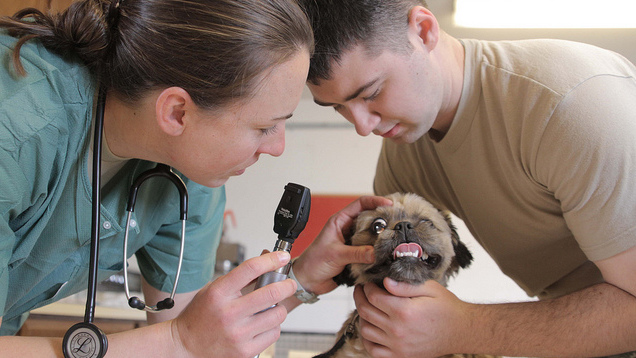
Lists are one of the best ways to break down any complicated task and make it more manageable, and it’s definitely the best way to get started when you’ve decided you want a dog.
Think about what you’ll need before the dog comes home, immediately afterward, and within the first year, for starters. This will help you figure out how your money and time management will change when the puppy comes home. Here’s an example:
- Before you bring home your new family member, try to get all the fun nesting stuff out of the way. Head to your local pet store and get the collar and dog tags, food, food and water bowls, a crate, dog shampoo, a brush, and toys or bones.
- Immediately after the dog comes home it will need its initial checkup at the vet’s office, and flea and tick prevention. You might also want to schedule puppy training and obedience classes, especially if you don’t have much experience.
- Within the first year of a puppy’s life you’ll need at least three rounds of shots over the first few weeks and, depending on the dog, a spay or neuter appointment. You’ll also want to keep in mind consistent costs. Puppies quickly outgrow old collars, and eat a lot while they’re growing as well. Most adult dogs won’t require as much vet attention, but they will still eat and need a “just in case” fund. If you travel, you’ll want to consider boarding, and if you’re busy, you might want to calculate the cost of your local doggy daycare or dog sitter. To keep from turning timid or aggressive, puppies need to be well-socialised with all kinds of people and animals starting at an early age, so you’ll plan to spend plenty of time out of the house with your puppy at dog parks and parks (after the vet gives you the go ahead once vaccinations are complete), and with friends and family.
These are just a few things to give you an idea of the time and money you’ll probably spend, but also think about your personal preferences. For example: if you want the dog to sleep on a dog bed, or if you might want a bigger car down the road so the dog can be mobile with you, that could add to the list. Other preferences, like not wanting pet insurance or skipping the obedience training, might subtract from the list. The monetary cost of owning a dog varies, but there’s no saving on the time and commitment you’ll want to give to make sure the dog is healthy and happy.
Decide What You Want In A Dog
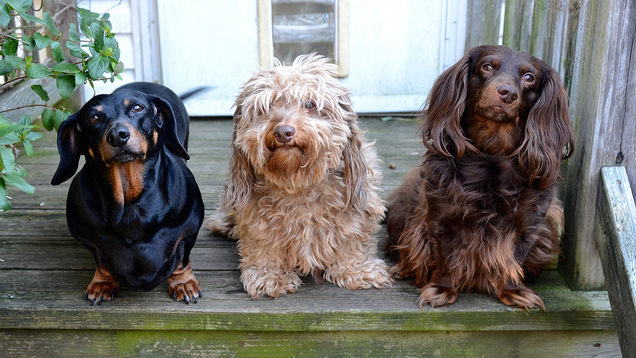
Choosing a dog is a lot like choosing a spouse. You’ll need to make compromises, but you’ll also need to get to know the dog and have your expectations and preferences figured out beforehand. Start by listing the most important things to you. Maybe you would like a high-energy running companion, or maybe you need something small and quiet because you live in an apartment. Whatever the case may be, write it down. Some preferences you might want to consider are:
- How old do you want your dog to be when it comes home? By adopting an older dog you might be able to skip housetraining, whereas a young puppy will require extra training, but you also get to have a greater impact on how the puppy is trained and shaping how it behaves in the long run.
- What size dog do you want? The larger the dog, the more it eats, and the more difficult it can be to handle if you live in a small space. On the other hand, some of us just like big dogs, or live alone and want to feel protected.
- Do you have the time, energy, and desire to take long walks every day? Or do you prefer a companion that’s either a little lazier or more self-sufficient? Dogs that have a lot of energy tend to behave badly when not given the opportunity to express it, whereas other dogs, like bulldogs, are pretty lazy and don’t require a lot of extra exercise. Either way, be prepared to be active with walks, trips to the dog parks or puppy play dates, but you do get to call the shots on exactly how active you want to be.
- Are you a beginner who’s worried about the difficulty of training a dog? If so, you’ll want a dog that’s easier to train. Some breeds are more difficult to train than others.
- Do you need a breed that’s known for being gentle and well-behaved with small children?
Keep evaluating your lifestyle and personality to get a picture of the kind of dog you want. If you’re experienced or super laid back, you may not have a ton of preferences, and that’s awesome. However, some people have some pretty strict needs. It’s best for both you and your future companion for you to lay these out beforehand.
Figure Out Which Breeds Fit Your Lifestyle
There’s an exception to every rule, but every breed has its own commonly found characteristics, from high energy to being tough to train. Since you can’t date the puppy before bringing it home, you’ll have to depend on the decades of research have gone into figuring out the differentiating characteristics of breeds, aside from looks.
Even if you’ve met a dog that’s inspired you to want one just like it, research the breed before you get one to have an idea of what you’re most likely in for. If nothing else, you’ll learn in what areas your dog will be high maintenance and what things will be easy for you. For instance: Yorkshire Terriers (aka Yorkies) need to be groomed almost weekly, but otherwise don’t require much maintenance. Cane Corsos, on the other hand, require a lot of exercise and food, but but don’t require much grooming at all. These are just the basics. Different breeds also have different trends in personality. Some breeds, like the Catahoula Leopard Dog, are revered for their sense of loyalty and bravery, while other breeds, like the Newfoundland, are loved by parents all over the world for their sense of nurturing with small children, but aren’t well known for their ability to guard and protect.
Of course, there’s always the chance you’ll get a mixed breed, or a dog you know little to nothing about. It’s still important to do some research so you can go in knowledgeable about what you might look for in terms of personality. The video above from Howcast says it best: don’t just use your heart when choosing a dog. Use your brain, too.
Where To Get Your Dog: Breeder Or Shelter
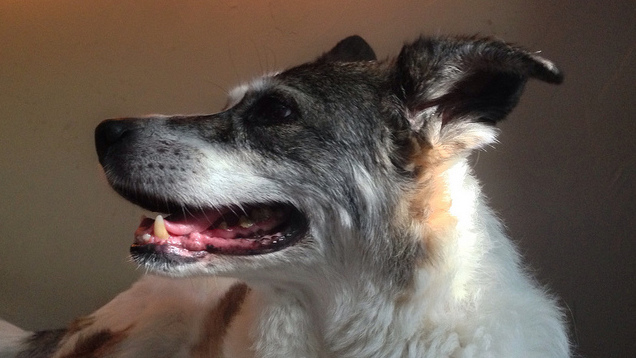
There are some strong opinions on which one of these options is better, but the truth is that in the end it has way more to do with the individual than it does the dog, and it’s a huge decision that should be carefully thought out. Here’s the breakdown of choosing between a breeder and a shelter:
With breeders it’s much easier to control your outcome, which is great for first-time dog owners, or experienced dog owners who have very specific preferences and needs. You’ve researched and found a breed you think will meet at least most of your expectations, and with a breeder you stand less of a chance of getting a dog that suffered abuse or a troubled past that will result in atypical temperament or other unpleasant surprises. You can also research reviews of a breeder and get an idea of the medical history of previous litters to know that your puppy will likely live a long, healthy life.
Just like anything else with getting a dog, nothing is guaranteed, but if you choose a breeder you’re increasing your chances of getting what you want with personality, temperament, and health. Breeders tend to be much more expensive than shelters on average, and the puppies only come home with their first round of vaccinations, so you have more vet visits to consider in addition to forking over more cash.
Shelter dogs are more like wildcards. You often don’t know much about a shelter dog’s past, what abuse or neglect it might have suffered, or triggers for aggression it might have, but there are some awesome benefits to adopting versus shopping, too.
For starters, you get a lot of variety. If you’ve done all your research and are still unsure, or feel the need to actually check out the different breeds somewhere other than the internet, a shelter might be the route you want to take. The volunteers and staff at the shelter are knowledgeable about multiple breeds and personality types, rather than specialising in just one breed like breeders, so you’ll get well-rounded answers to any questions you have. During your research, you might even find yourself settling for a breed you’re not really stoked about just because it seems like a good fit for you and your family on paper. At a shelter you have a wide variety of breeds and dogs that could turn out to be the perfect fit. Shelters are also generally much less expensive. Your dog will have a relatively small adoption fee and come home up to date on vaccinations, as well as already be spayed or neutered.
It can be a little more risky, but if rescuing a dog is important to you, do it! If you’re a first time owner, you just might want to consider easing into adopting a rescue by signing up to foster one first. By fostering, you’re giving a rescued dog a home temporarily until it goes to its forever home. This gives you the chance to get a feel for what you may or may not be in for with a particular dog, or with owning a dog in general if it’s your first time. This could also be an excellent option if you have children and want to see how they get along with the new dog before you make any permanent decisions. You could adopt the dog once you get to know it, or help rehome it instead if it’s not a good fit for you, your family, or your lifestyle. Fostering isn’t only a safer option for you and your family, but it’s also a safer option for the dog, because it reduces the chances of a dog being adopted from a shelter just to be sent back down the line.
What to Look for In a Shelter
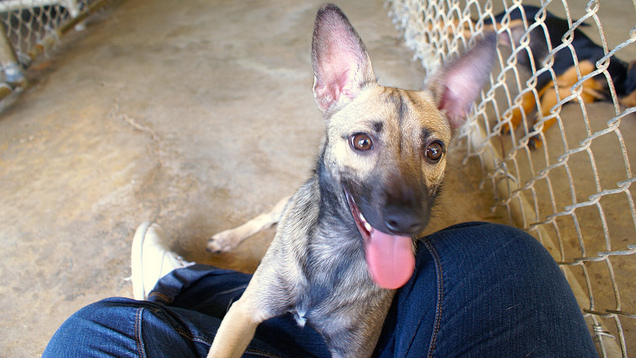
Once you decide where you want to get your dog from, it’s time to learn how to select which breeder or shelter you want to go with. If you decide to rescue, Dr Emily Weiss, ASPCA’s Vice President of Shelter Research and Development, recommends researching local options, and then speaking with an individual at each place to get a feel for it.
Something else you’ll want to consistently ask about are the dogs’ past homes, or otherwise ask about how it behaves at the shelter. You’ll also want the shelter to help you find the pet that fits your preferences:
We recommend folks take a couple of minutes, close their eyes, and imagine the pet in their home — what are your expectations for how the pet behaves in the home? The shelter should be able to help you find a pet that matches your expectations.
Rescuing is awesome, but you still want to be careful to do the proper research. The more thorough the shelter, the less you have to worry about your dog coming home with unexpected temperament and medical issues.
What To Look For In A Breeder

Breeders are more like small business owners, and each breeder has their own practices unique to the next. Some breeders will scam you because they care more about the money than they do the dogs, or actually had an accidental litter and are learning as they go. Every dog needs a home, but you need to know whether you’re getting into a situation that will require you extra vet bills or training down the road due to a breeder’s lack of care during the first eight weeks. Here are some things to look for.
A good breeder will welcome a home visit, and you should notice efforts in cleanliness and sanitary precautions to keep the puppies safe. Katie Heiss, international catahoula breeder and veterinary client service coordinator, explains:
A quality breeder will enjoy having you see the pups and how they are cared for before choosing a puppy or even choosing them as a breeder. A quality breeder will also take proper precautions to prevent disease such as removing shoes before entering the house and disinfecting your hands before handling pups. There may also be a wait for the pups to be a certain age before allowing visitors.
In addition to the home visit you also want to find out how much work the breeder puts into the pups. Some breeders will send puppies home barely weaned from their mother’s milk, while other breeders, like Katie, go the extra mile to ensure clients have the best experience possible:
From removing loose rear dew claws on day 1, keeping their pen as clean as possible, introducing the “misty method” of paper training as soon as pups eyes are opened at 10-14 days, using “imprinting” daily on pups from day 3 of life, temperament tests at 5 and 7 weeks of age and being sure the pups are well socialised to deworming, vaccinating and taking an obscene amount of pictures and videos….there is a big difference between someone who is willing to put the time and effort into doing everything possible to excel at being a breeder and someone who is just trying to manage until the day the pups are picked up.
Katie also warns to be wary of breeders who send puppies home before eight weeks of age, and breeders who seem to have little to no relationship with past clients. If you want to have an idea of the Dam and Sire’s (puppy’s mum and dad) personalities to get an idea of what you might be in for with your puppy, visit the breeder before the litter is even born. If you visit afterward, the mother might be a bit more protective of her litter, clouding how she normally behaves.
This Is Just The Beginning
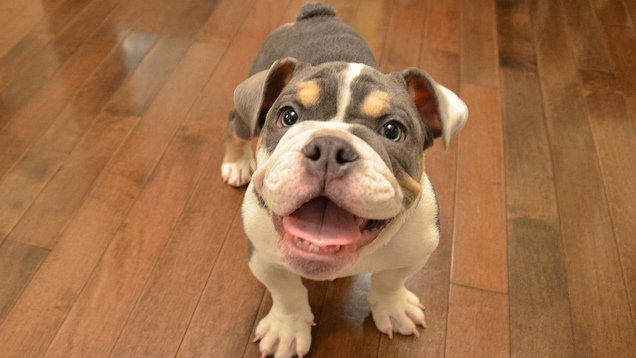
These are the basics, but once you have a dog there’s a lot more to consider — more than we could fit in this one article. Now it’s time to read fun puppy training books and subscribe to puppy training YouTube channels. Save your money for bringing your dog home and the weeks following, and start creating the space where the dog will eat, sleep, and play. Research your local veterinarians. Do walk-in visits and get a feel for the place. Anything you would want in your own doctor’s office, like cleanliness, knowledgeable staff and doctors, and good patient care, are the same things you should look for in your dog’s vet.

Comments
4 responses to “Where To Start When You’ve Decided You Want A Dog”
Consider a rescued, ex-racing Greyhound.
Greyhounds are gentle, affectionate dogs that thrive on human companionship and their friendly, loyal nature and wonderful temperament make them an ideal pet. They are usually very good with children. Their short, sleek coat, the absence of doggy odour, their placid, sedentary nature and love of comfort combine to make them an excellent indoor pet. They tend to be “couch potatoes” and are content to laze around on a cosy bed or on the lounge beside their owners. They rarely bark, usually only when something is wrong or when they get really excited.
Plus you get to save a life – they are often killed after they have finished racing.
There are lots of Greyhound rescue groups around. In QLD/NSW try Friends of the Hound (http://www.friendsofthehound.org.au/) and in Victoria try Amazing Greys (http://www.amazinggreys.com.au/)
Yep, or any other rescued dog from a shelter. These are dogs on death row.
My friends dog’s a rescued dog. Loveliest little thing, super friendly and not a thing wrong with it, it’s just afraid of everyone until it gets to know them.
1.”What size dog do you want? The larger the dog, the more it eats, and the more difficult it can be to handle if you live in a small space.”
Wrong wrong wrong. The energy level of a breed is more of an issue than size. Giant low-energy breeds like danes, malamutes etc make excellent house dogs as they generally lie down indoors.
2. Be wary of breeders who are more focused on the championship ring than on creating good companions. Bad breeders consider pets to be defective show dogs. Research the life span of dogs that come from that breeder – if they’ve line-breeding to make beautiful (but often short-live) show dogs – then you may be in for a tragedy and/or high vet bills within five years.
Show breeders also want to de-sex dogs far too early, which may cause issues later when poor hormone supply affects bone growth.
3. If you’re looking at a particular breed, compare the dog to photos of what the breed looked like 80-100 years ago. If the current animal’s face is flatter or eyes bulgier or legs shorter or spine longer (esp dachshunds) etc then inbreeding has produced an individual animal that may have a delightful personality but be suffering from respiratory and/or spinal issues from birth.
4. If buying a designer mongrel dog (often an -oodle) then you may be supporting a breeder who culls puppies that don’t conform to a superficial aesthetic. In some cases, it may be the healthier pups who are culled.